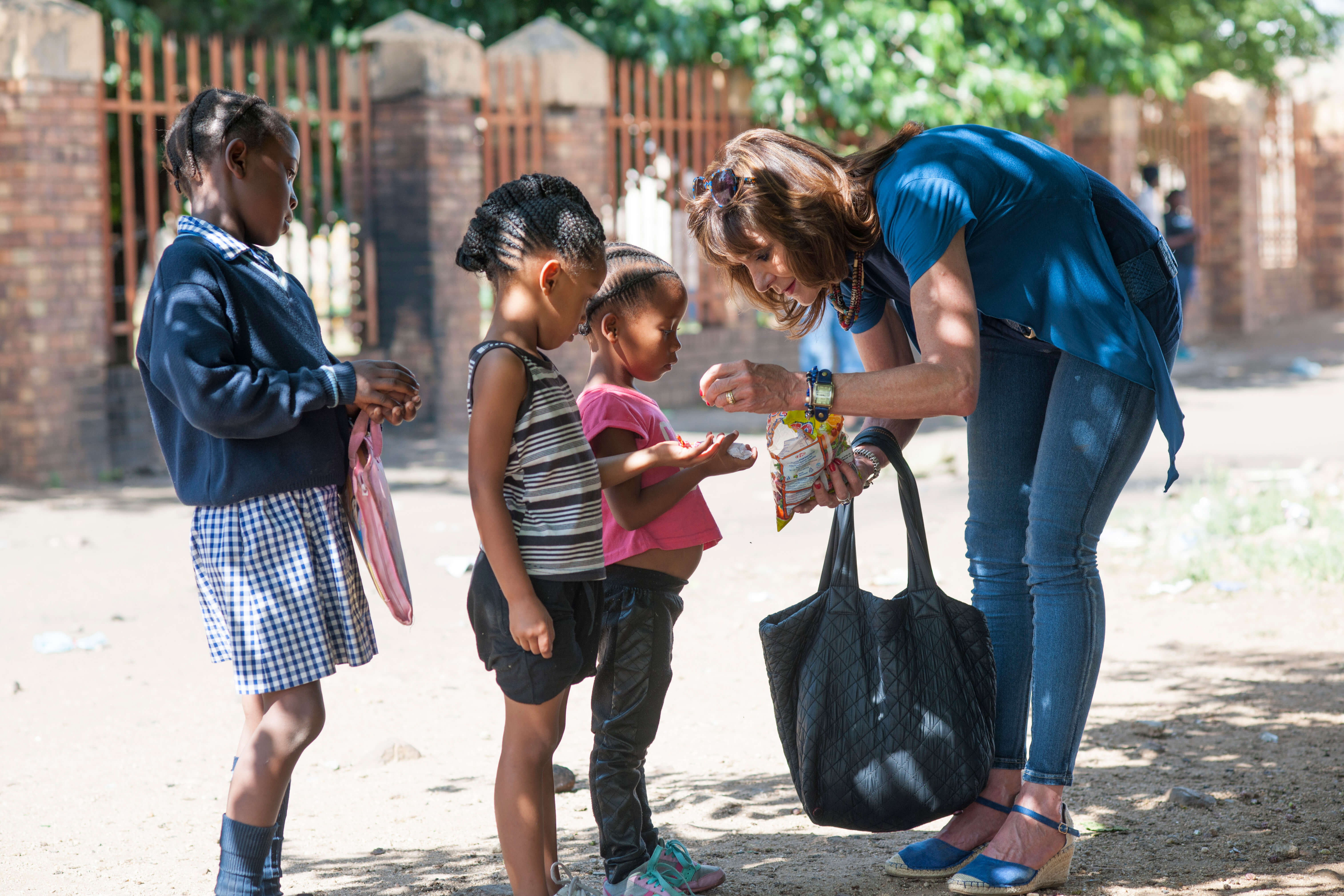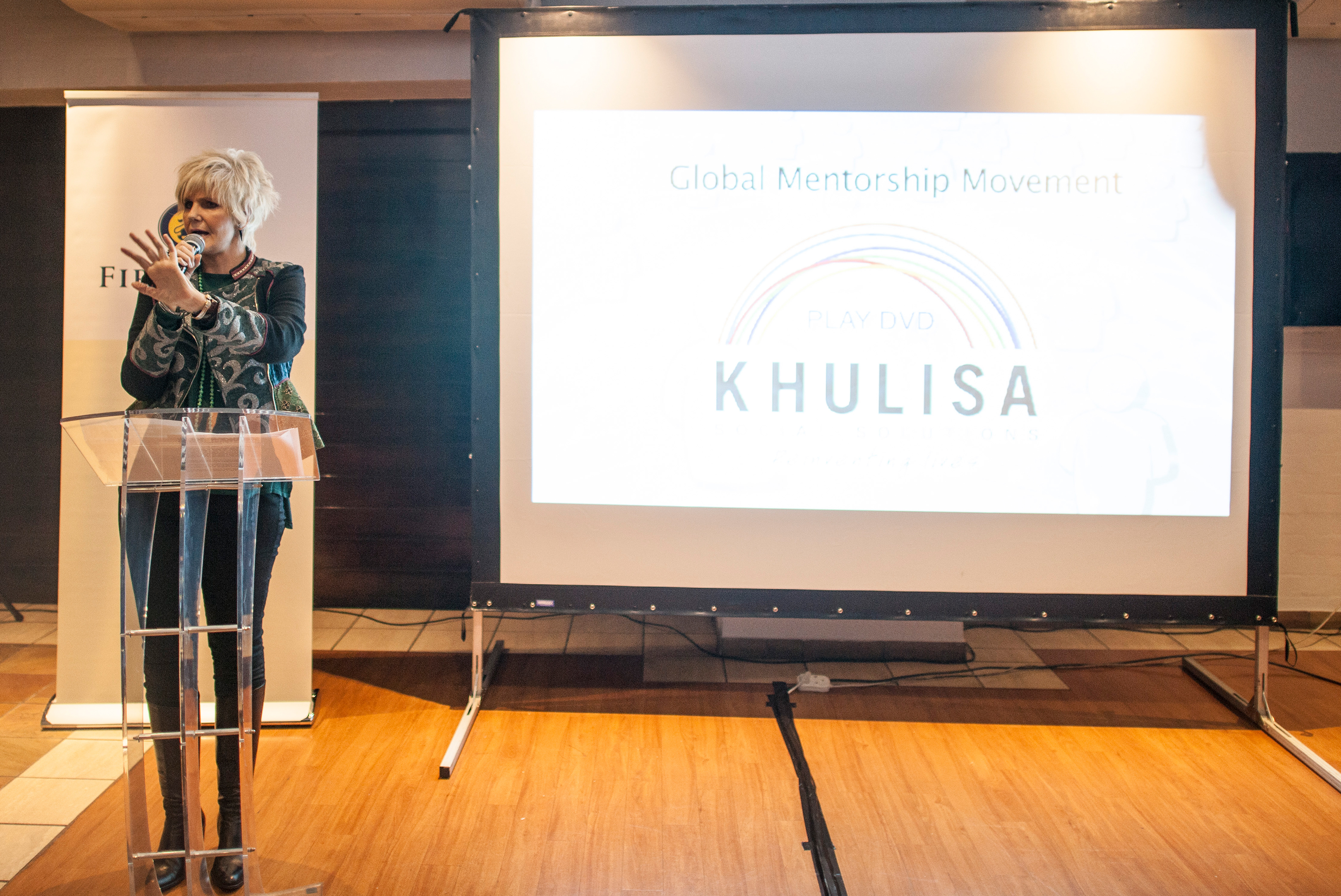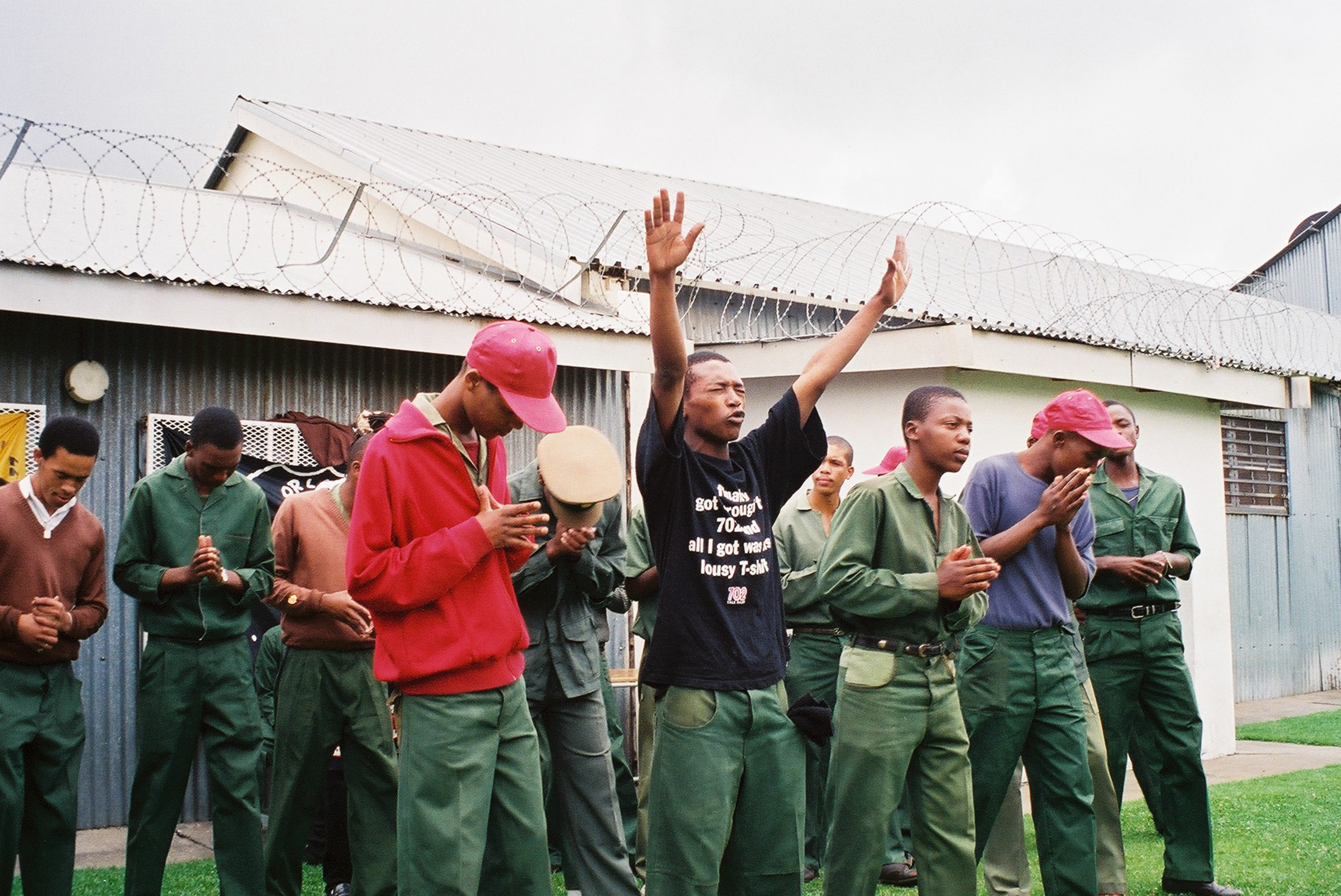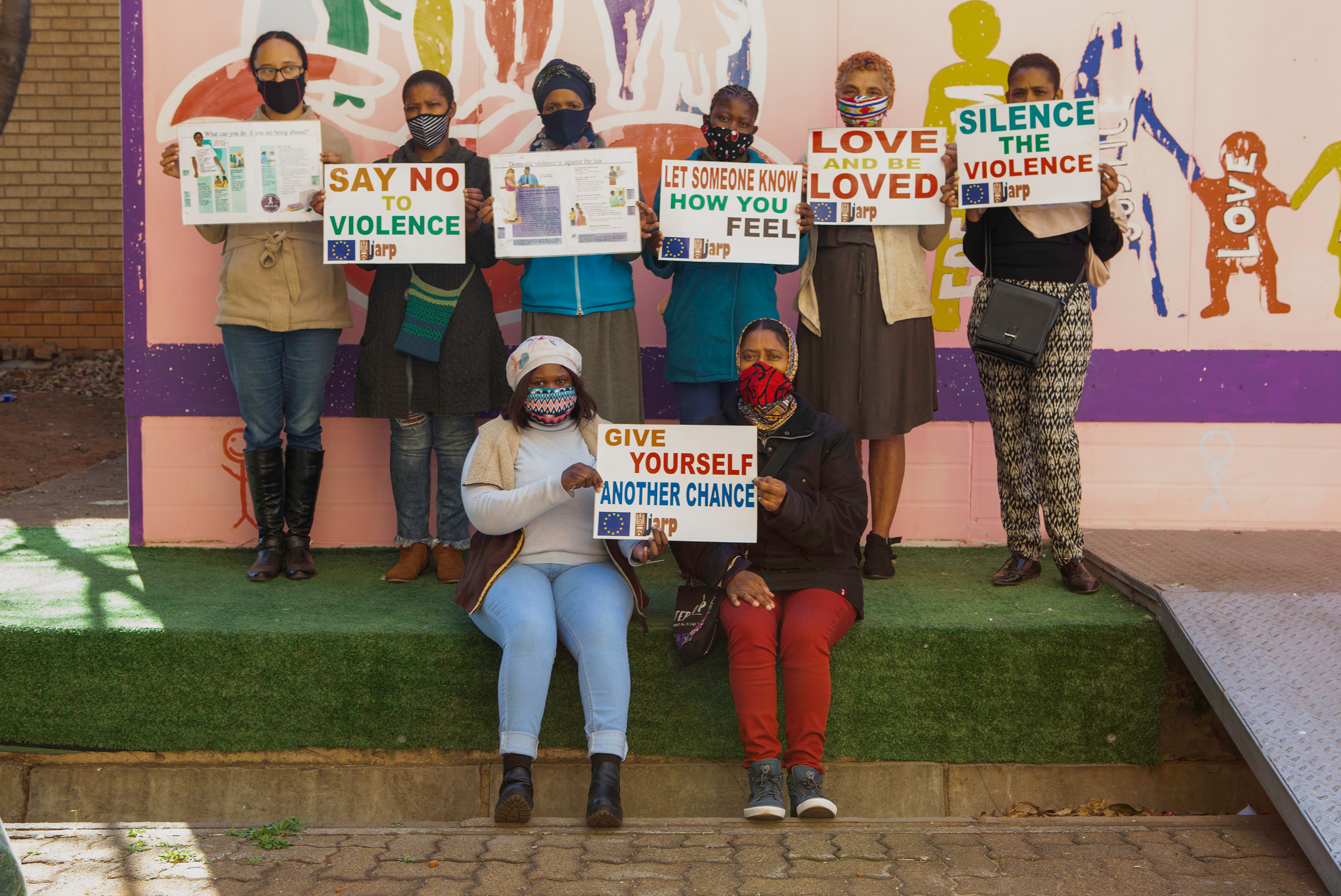With decades of experience and a cabinet full of awards under her belt, Khulisa Social Solutions founder and managing director, Lesley Ann van Selm, still manages to retain her boundless energy and passion for solving community problems through dialogue. The view that people from outside a community know what’s best is something that van Selm rejects outright.
Is this then the key to Khulisa’s impressive track record of empowering vulnerable children, youth and the marginalized to unlock their full potential to develop resilient pathways and skills that has been leading to a sustainable future since 1997?
DevelopmentAid spoke with Lesley to find out more.
DevelopmentAid: Please briefly describe what Khulisa does.
Lesley Ann van Selm: With 180 staff in 16 offices across South Africa, Khulisa is able to support about 150 communities and impact the lives of 200,000 people per year. We do this with the support of a number of partners across the private, public and NGO sectors.
Our focus is somewhat different to other NGOs, as the core of our programs lies in social cohesion, including increasing access to justice, providing diversions and a broad range of developmental programmes.
DevelopmentAid: There are many NGOs in South Africa doing similar work, however Khulisa has managed to be successful for well over two decades. What do you believe sets Khulisa apart from other NGOs?
Lesley Ann van Selm: Civil society networks and platforms exist in a world that is complex, uncertain, polarized, chaotic, disconnected, and evolving at a rapid pace. We recognize that the typical approaches of government and NGOs compartmentalize problems and deliver programs that tend to address single issues in a non-operative and unsustainable manner.
So, Khulisa has developed an approach that addresses the challenges faced by communities in a holistic and comprehensive manner by adopting an integrated approach to community development. The organization’s purpose is to utilize this methodology to deliver a strength of community cohesion to communities and to aid their development.

Through promoting social cohesion, Khulisa capacitates individuals, the community, local government and NGOs to roll out activities to create inclusive and collective spaces for experience sharing, the acquisition of knowledge, the development of innovation, resilience building, and conflict resolution. The program serves to equip and empower people with actionable knowledge to promote active citizenship, entrepreneurship, job creation, employment, and innovation.
Through collaborations we are making underfunded areas visible and thus leveraging opportunities to access potential income for fledgling NGOs where support generally would not exist. Our model contributes to more abundant, relevant resources for social change.
DevelopmentAid: What are the most pressing challenges NGOs in South Africa are currently facing?
Lesley Ann van Selm: South Africa is no longer being viewed by international donors as a third-world country. Funds previously received from international donors and embassies are now being channelled directly to the government through bilateral agreements.
The boundaries between civil society organizations and retaining their independent voice have become increasingly blurred as traditional funding streams have shrunk which has resulted in uncertainty and forced many organizations into survival mode.
The funding received from government has become extremely bureaucratic and adhering to so many of the compliancy requirements is resource demanding and with minimal contribution towards operational costs, losses often occur.
From the corporate funding perspective, most organizations are required to continue to work on short-term projects with exacting measurable outcomes which we acknowledge does not contribute towards sustainability.
Even if donor support for addressing community priorities is genuine and in support of authentic social change, it is too often misplaced by the focus on managing areas in planning, compliance, and accountability structures.
DevelopmentAid: How do you believe this can be addressed?
Lesley Ann van Selm: The “ideal” donor has become less prevalent – those offering operational support, flexible program funding and supporting institutional growth.
We are in need of a flexible funding approach which provides us with line items that will enable us to capacitate our organizations to support our partners and enlist support in areas such as communication, impact measurement, financial management, and leadership development.
DevelopmentAid: What are the most pressing challenges that marginalized communities in South Africa are currently facing?
Lesley Ann van Selm: The list is long and getting longer. It is the big issues that make it into the media like inequality, the lack of services, a poor education system, corruption, unemployment, and poverty. There are also factors that do not make the headlines like lack of civic education and lack of consultation with the affected communities.

DevelopmentAid: What is Khulisa doing to address this?
Lesley Ann van Selm: Networks and coalition can be powerful forces for change, especially when they mobilize the diversity of the members and voices that we have in civil society. Since the beginning of the COVID-19 pandemic, we have seen how often civil society is closest to the needs of the community
At Khulisa, we use an eco-systemic approach. The model identifies the systemic challenges in society and communities, attaches value to intrinsic community assets and indigenous knowledge, and explores and maps the opportunities to overcome the fragmentation of policy, systems and service delivery through the supported mobilization of local capacity. Based on this understanding, Khulisa works collaboratively with multiple stakeholders to identify key projects that would have the highest impact in ‘the system’ to effect sustainable social change.
We drive, co-ordinate and hold space for the diversity of development and transformation debates and dialogue, as well as for collective action by civil society. For many NGOs and NGO platforms this will require a shift away from a role as a mere service provider to that of a facilitator and supporter. A broader civil society organization, especially social movements, through this marginalized community themselves can engage in dialogues and negotiations to claim their rights and enhance their collective assets and capabilities, locally, nationally, and globally.
DevelopmentAid: What are some of Khulisa’s recent achievements using this eco-systemic approach?
Lesley Ann van Selm: We have a number of sustainable projects that I am very proud of. Specifically looking at the past few years, some of the pioneering projects have been our Communities of Opportunity and StreetScapes projects.
Between 2019 and 2021, we researched and developed our Communities of Opportunity concept in six provinces in South Africa, consulting almost 3,000 community members at grassroots level on their perspective of social cohesion.
Last year, we secured funding through the City of Cape Town for the Streetscapes project to expand its services to the homeless through partnerships with 13 NGOs, reaching over 600 homeless people.

DevelopmentAid: How do you measure the success of the projects you are involved in?
Lesley Ann van Selm: We gather baseline data at the outset of all interventions and then keep track of the data as the project progresses. We track a number of indicators under various categories, in respect of:
- NGOs: Trainees, beneficiaries, community members who participated in outreach programs, partner stakeholders, success indicators, capacitated NGOs and the number of NGOs aligned in fundraising efforts.
- Community at large: Improved government structures, enhanced capacity building and skills in facilitation, heightened profile, beneficiaries, number of community members familiar with the Constitution, Bill of Rights and active citizenship, number of dialogue sessions held with local authorities to address the lack of service delivery, and the number of community members demonstrating willingness to be trained in community peace mediation.
- School-going children: Drop in bullying and substances abuse, improved behaviour, enhanced academic performance, reduction of truancy, decrease in gender-based violence, involvement of parents in school activities, numbers of children familiar with the Constitution, Bill of Rights and active citizenship.
- Youth: Numbers of youth engaged in outreach activities, dialogue circles, storytelling and peace mediation, change of perception of youth towards community cohesion, number of dialogue sessions held with local authorities to address the lack of service delivery and numbers of youth demonstrating willingness to be trained in community peace mediation.
- Perpetrators and victims: Number of victims benefitting from dialogue circles, storytelling, mediation, number of mediations conducted, victim/perpetrator satisfaction surveys, drop in incidents of domestic violence/gender-based violence cases, increase referrals from court, NPA and community, and number of referrals from courts and schools.

DevelopmentAid: What is Khulisa’s view on a Basic Income Grant?
Lesley Ann van Selm: There are many individuals who, because they do not have identity documents or the resources to apply for a basic income grant, will not be eligible. However, for those who will be, it is evident that, particularly in the light of the lack of permanent income, this grant will provide some reprieve. There are also challenges with rampant fraud and that needs to be dealt with. I also believe that in certain cases this grant may remove the incentive for people to work.
DevelopmentAid: What are some of the unintended consequences that Khulisa has observed, at grassroots level, of the increasing levels of poverty and unemployment that South Africa is facing?
Lesley Ann van Selm: As opposed to elaborating on the increased dysfunctionality of communities due to increased levels of poverty and unemployment, I am going to focus on emerging trends that the aforementioned challenge has given rise to in terms of NGOs mobilizing financial resources at a local level. Some of these include:
- Tapping into funding opportunities for the promotion of sustainable livelihoods which has enabled us to reassess the categories of funding for which we have become eligible, targeting support for small grassroot organizations who have less capacity to raise funds from international donors or individuals and in spite of their valuable contribution to the wellbeing of the community, lack of infrastructure and resources.
- Start to change the attitudes towards funding from one of competition to cooperation between NGOs, CBOs, co-operatives and informal groups
- Respect CSOs as competent partners, acknowledging them as potentially serious, reliable service providers and equal partners.
- Enhanced interest in volunteerism across all sectors
DevelopmentAid: What advice can you offer development organizations working in developing countries?
Lesley Ann van Selm: The positive impact of any type of community-based work depends to a large extent on the work done at the local level. Key partners involved in voicing local needs, tackling local problems, and engaging grassroots groups share a large part of the responsibility for the adequate adjustment of policies and implementation whilst advancing local interests.
Adopting the bottom-up approach provides significant insight into the community’s needs, access to local knowledge and capabilities. This “inverted pyramid” approach creates social opportunities and transforms capabilities.
Involving the public in the work of government through participation is the key.
The capability approach, the enhancement of social opportunities, and, more generally, economic development come about primarily through public discussions and social participation. Although grassroot associations may and often do engage in service delivery, the core of their activities is defined as participation.
The democratic deficit employs the strategy for better governance by fostering citizen engagement through various means. Interaction with non-profit voluntary organizations and civil dialogue is to support and legitimize the work of various government institutions.
Grassroots organizations are democracy actors. They regard engagement with grassroot groups as vital to citizen activation and participation. Involving the public in the work of government through participation is essential when it comes to policy making, e.g., agenda setting, policy formulation, adaptation, implementation, evaluation from the local to the European level.
In this regard participation, openness and accountability need to be nurtured.

